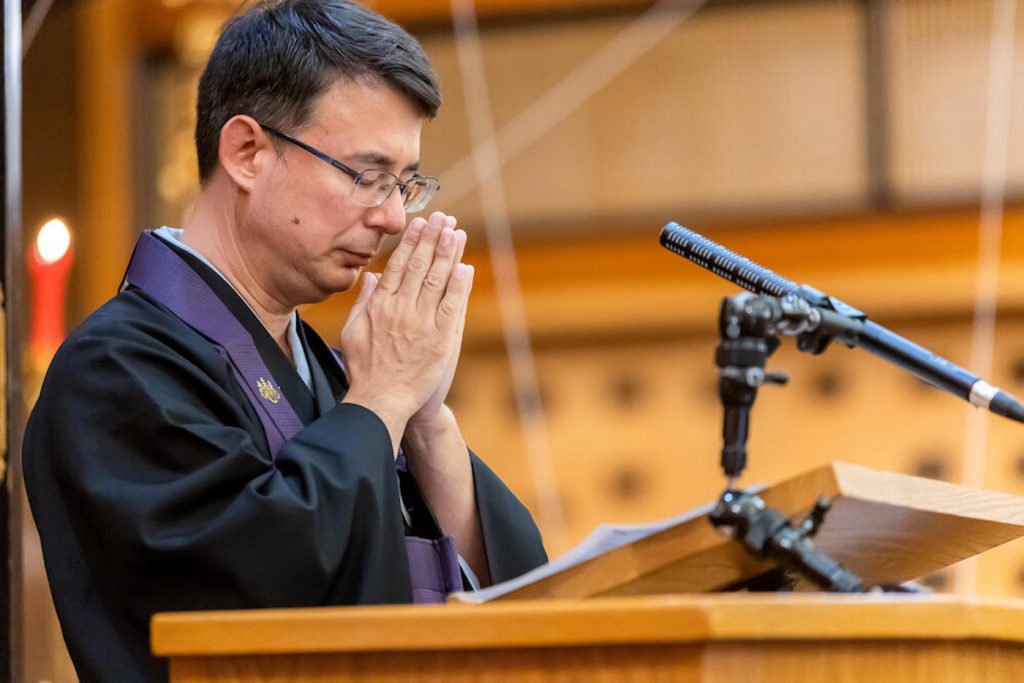May We Gather, a Buddhist collective created in the wake of anti-Asian violence in the US in 2020 and 2021, will commemorate the three-year anniversary of the 2021 Atlanta spa and massage parlor shootings with a pilgrimage in Antioch, California, on March 16, 2024, and a series of online talks leading up to the event.
This three-part speaker series, called “Resilience, Recovery, Repair,” will feature conversations with a variety of speakers and is cosponsored by Tricycle: The Buddhist Review. Upcoming talks are “Recovery: The History of America’s Early Buddho-Daoist Temples,” moderated by Chenxing Han on February 8, and “Repair: A Path to Healing Land and Ancestors,” moderated by Funie Hsu on February 22.
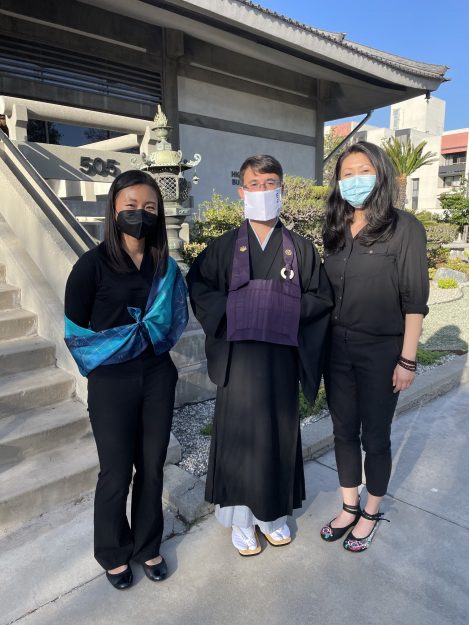
May We Gather was born out of conversations between Duncan Ryuken Williams, a Soto Zen priest and director of the Shinso Ito Center for Japanese Religions and Culture at the University of Southern California; Funie Hsu, a transdisciplinary scholar and associate professor of American Studies at San Jose State University; and Chenxing Han, an author and the Khyentse Visitor in the Department of Asian Languages and Cultures at the University of Michigan. May We Gather aims to emphasize interconnection and the necessary ongoing work to “heal America’s racial karma,” according to the organization’s website. Events were held on the traditional Buddhist days of mourning: forty-nine days, one hundred days, one year, and three years.
In March 2021, a gunman targeted two spa and massage parlors in the Atlanta area, killing eight people. Six of the victims were women of Asian descent; Yong Ae Yue, 63, was a Buddhist who was born in South Korea and remembered for loving her family, cooking, and karaoke. The alleged shooter, Robert Aaron Long, who was 21 at the time of the murders, was sentenced to life in prison without the possibility of parole for the Cherokee County slayings. Long is facing the death penalty for the murders in Fulton County, and the case is ongoing.
While the events and remembrances have focused on the Atlanta murders, organizers also wanted to respond to the growing anti-Asian sentiment following the COVID-19 pandemic. The virus originated in China and was referred to as the “Chinese virus” by then-president Donald J. Trump, who is seeking a second term in November 2024. There were instances of temples across the country being vandalized, and other victims of violence believed to be racially motivated, including Vicha Ratanapakdee, an 84-year-old Thai American who died after being pushed to the ground in San Francisco in January 2021.
Han tells Tricycle: “we hope these events will inspire others to open up conversations around resilience, recovery, and repair and to organize meaningful gatherings—whether memorials, pilgrimages, or something else—that connect their sanghas with neighboring Buddhist temples and spiritual friends near and far.”
Han explains that the March 16 pilgrimage, which will also be live-streamed, is being held in Antioch due to the city’s “history of discrimination and violence against early Chinese immigrants and their descendants.” She also notes how Antioch’s Chinatown was burned and destroyed in 1876 by white residents following the “scapegoating of six Chinese American women as sources of sexual contagion.” The city had so-called “sundown laws” for at least two decades in the mid- and late 1800s that barred Chinese residents from being in public after sunset. The city formally apologized for these discriminatory laws in April 2021.
“We selected this diverse city for our upcoming peace walk because it highlights a historical parallel between 19th-century racial, religious, and gendered violence and contemporary attitudes toward the Asian American community in the wake of COVID-19,” Han says, adding that this history was brought to the group’s attention by founding member Hsu. “We gather in Antioch at the site where [its] Chinatown once stood to recover this history, to acknowledge the legacy of America’s racial karma—as demonstrated by the Atlanta-area shootings and the ongoing racial violence in Antioch—and to heal in community together.”
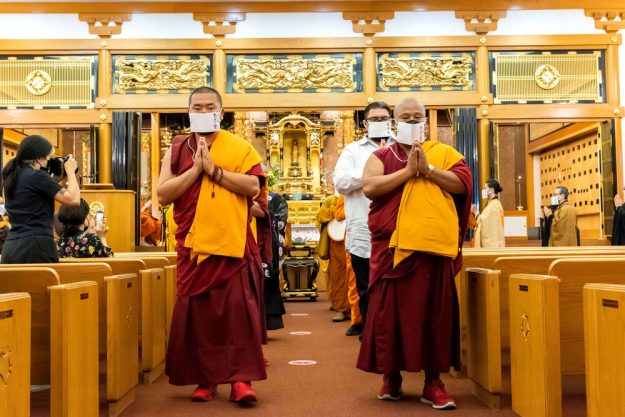
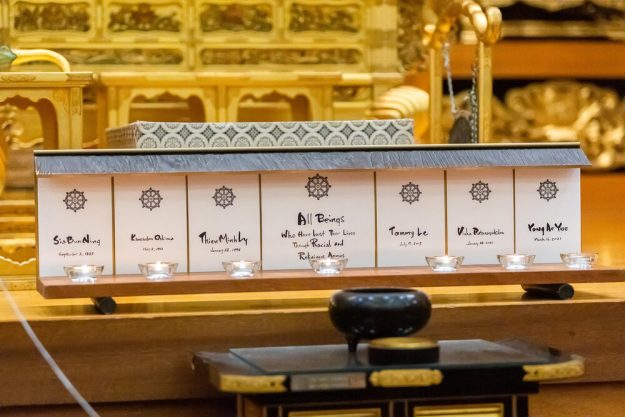
Buddhist leaders from different traditions and languages are expected to attend the pilgrimage. May We Gather’s website provides information in many languages, including Burmese, Cambodian, Chinese, Japanese, Korean, Lao, Sri Lankan, Taiwanese, Thai, Tibetan, and Vietnamese, which sanghas can use to share with their communities. Those planning to attend in person are asked to register in advance.
“Recovery: The History of America’s Early Buddho-Daoist Temples,” moderated by Chenxing Han, will be a discussion on “cultural and religious recovery through architecture and archives” with Drs. Chuimei Ho, Bennet Bronson, and Jonathan H. X. Lee at 4 p.m. Pacific / 7 p.m. Eastern on February 8. “Repair: A Path to Healing Land and Ancestors” will “consider Asian American Buddhist resilience and recovery alongside the racial karma of settler colonialism and enslavement, as well as the cultivation of spiritual friendship.” Speakers for this panel are Corrina Gould of Sogorea Te’ Land Trust, Christine Cordero of Asian Pacific Environmental Network, and Devin Berry and Noliwe Alexander of Deep Time Liberation; the talk will be moderated by Hsu at 4 p.m. Pacific / 7 p.m. Eastern on February 22. Those interested can register for both events here.
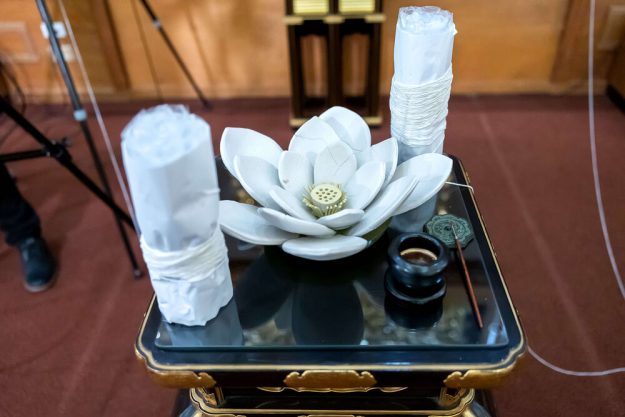
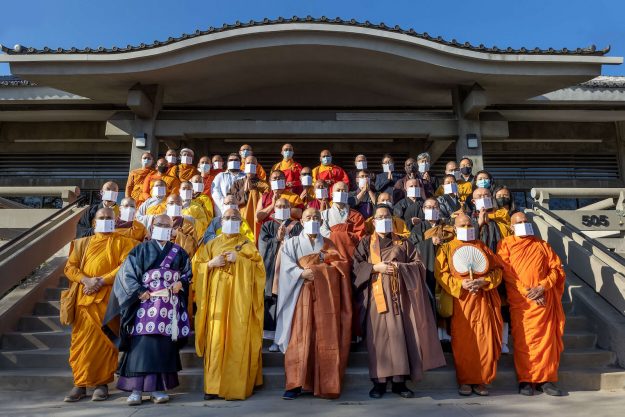
Thank you for subscribing to Tricycle! As a nonprofit, we depend on readers like you to keep Buddhist teachings and practices widely available.
